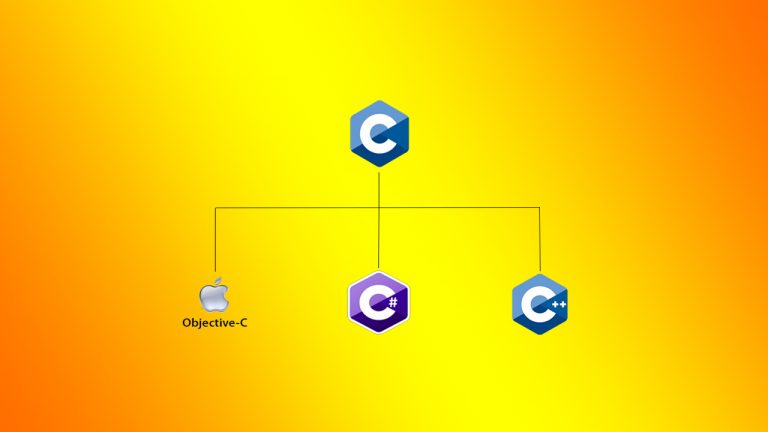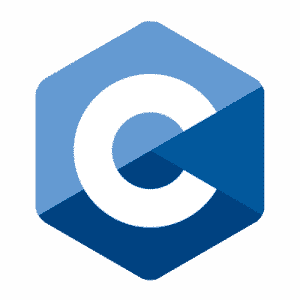Computer science is a vast field, and even after earning a degree or gaining years of experience in the industry, many professionals may still struggle to grasp all of its intricacies. While most programmers are familiar with C, often regarded as the “mother of all programming languages,” some may also have experience with C++, an extension of C. However, when confronted with C# and Objective-C, confusion often arises. Are these merely different versions of the same language, or do they serve distinct purposes?
All these languages—C, C++, C#, and Objective-C—are either built using C or significantly influenced by it. Understanding their advantages and differences is crucial for choosing the right language for your projects. Let’s explore each language in detail.
Contents
C vs C++ vs C# vs Objective-C
C Programming Language
C, one of the oldest programming languages, was developed in the early 1970s. It became a foundational language for mainframes and microcomputers and has since been a universal coding standard across various industries. Even today, C remains dominant in system programming due to its efficiency and versatility.
Read: Interesting C Programming Tricks You Didn’t Know Before
Key Features of C:
- Used for developing operating systems, firmware, and low-level system software.
- Commonly used in embedded systems and real-time applications.
- Highly efficient in terms of performance, memory management, and execution speed.
- Lacks built-in object-oriented programming (OOP) capabilities.
C is widely utilized for writing libraries that other languages can use and is crucial in developing cross-platform applications. Despite lacking OOP features, its influence is evident in languages like C++, C#, and Objective-C.
Read: Why Every Programmer Should Learn C Programming Language?
C++: The Object-Oriented Extension of C
C++ was developed to enhance C by incorporating object-oriented programming. This addition allows developers to write modular, reusable, and scalable code, making it ideal for large-scale software projects.
Key Features of C++:
- Supports both procedural and object-oriented programming paradigms.
- Used extensively in game development, high-performance computing, and system-level applications.
- Powers software such as Adobe Photoshop, Mozilla Firefox, and even parts of Microsoft Windows.
- Provides better memory management and control compared to other high-level languages.
Due to its efficiency and flexibility, C++ is a popular choice for graphics-intensive applications, video games, and performance-critical software.
Read: C vs C++ – Which Programming Language is Better?
C#: Microsoft’s Versatile Language
C# (C-Sharp) was introduced in 2000 by Microsoft as part of its .NET framework. It was inspired by C but was not built directly from it. Instead, C# is a modern, high-level language designed for developing Windows applications, backend services, and enterprise software.
Key Features of C#:
- Strongly tied to the Microsoft ecosystem.
- Ideal for Windows software development and backend web services.
- Extensively used in game development with Unity 3D.
- Features automatic memory management with garbage collection.
Though C# is primarily associated with .NET, it can also be used for cross-platform development, making it a versatile language.
Read: Reasons to Learn C# Programming Language
Objective-C: Apple’s Former Go-To Language
Objective-C was created to extend C by incorporating object-oriented programming concepts. It gained prominence when Apple adopted it for macOS and iOS development. However, in recent years, Apple has been shifting from Objective-C to Swift, a modern and safer language.
Key Features of Objective-C:
- Previously the primary language for iOS and macOS applications.
- Focuses on code reusability and modularity.
- Compatible with C and C++.
- Has a more complex syntax compared to modern alternatives like Swift.
While Objective-C remains relevant for maintaining legacy Apple applications, Swift is now the preferred language for iOS development.
Read: Why You Should Learn Swift Programming Language?
Final Thoughts: Which Language Should You Learn?
Each of these programming languages serves different purposes, and choosing the right one depends on your career goals:
- C and C++: Ideal for system programming, embedded systems, and game development.
- C#: Best for Windows applications, .NET development, and Unity game development.
- Objective-C: Useful for maintaining older iOS/macOS applications, but Swift is the future.
Understanding these languages’ strengths and industry applications will help you make informed decisions about your programming journey.
If you’re preparing for a career in software development, consider enrolling in a structured learning program or exploring open-source projects to gain hands-on experience.


